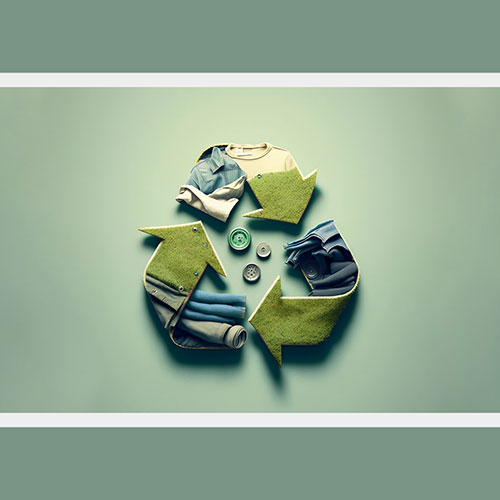University of Huddersfield to lead £1.75m project to transform textile waste into recycled plastics
 Clothing is a major but often overlooked contributor to the plastic waste mountain. The problem arises not just from clothes packaging but also from plastic’s incorporation into textiles alongside natural fibres. Separating it out again from these is hugely challenging, with over 80% of the plastic used in the textiles industry not currently recycled.
Clothing is a major but often overlooked contributor to the plastic waste mountain. The problem arises not just from clothes packaging but also from plastic’s incorporation into textiles alongside natural fibres. Separating it out again from these is hugely challenging, with over 80% of the plastic used in the textiles industry not currently recycled.Now, Dr Chenyu Du, a Professor in Biochemical Engineering within the School of Applied Sciences at the University of Huddersfield is to lead an innovative new project following the award of a substantial £1.75million research grant from the UK Research and Innovation’s Engineering and Physical Sciences Research Council (EPSRC) and Biotechnology and Biological Sciences Research Council (BBSRC).
With key input from academic and industrial partners, the Huddersfield-led project will adapt two innovative processes to the recovery of polyester and cellulose from mixed cotton and polyester fibres.
By working closely with Professor Parik Goswami, Director of the University’s Technical Textiles Research Centre, Professor Du’s project will also demonstrate how these materials can be re-spun into new fibres for new textile products.
“Making clothes uses tremendous resource and energy, so to end its life in landfill or incineration after hardly any usage is a huge and unnecessary waste,” said Professor Du.
“Currently, just less than 20% of the plastic used by the textiles industry is being recycled. Our ambition is to be able to recycle a majority of, if not all, textile industry waste and to discover new and innovative methods for its reuse.”
Just five projects from throughout the UK have been chosen by the UKRI to take part, with each one helping to deliver a step change in the sustainability of plastics under its own theme. A total of £6 million will underpin the multidisciplinary three-year projects with the aim of cutting the huge environmental damage that plastics cause, as well as increasing their longevity in use and boosting their value.
The themes being investigated will target areas such as the recycling of plastics incorporated in textiles, the easier recycling of multilayer food packaging, the re-use of plastics used in pregnancy and other medical tests, the greener production, use and disposal of hygiene products such as disposable nappies and incontinence pads, and the breaking down of used plastics into their chemical components for reuse in producing high-quality new plastics.
“This research being led by Professor Chenyu Du,” said Professor Goswami, “is part of a wider set of projects which are set to tackle the biggest problem of our generation.
“All these projects are designed to enrich the textile eco-system and create a roadmap towards net-zero,” he added.
























